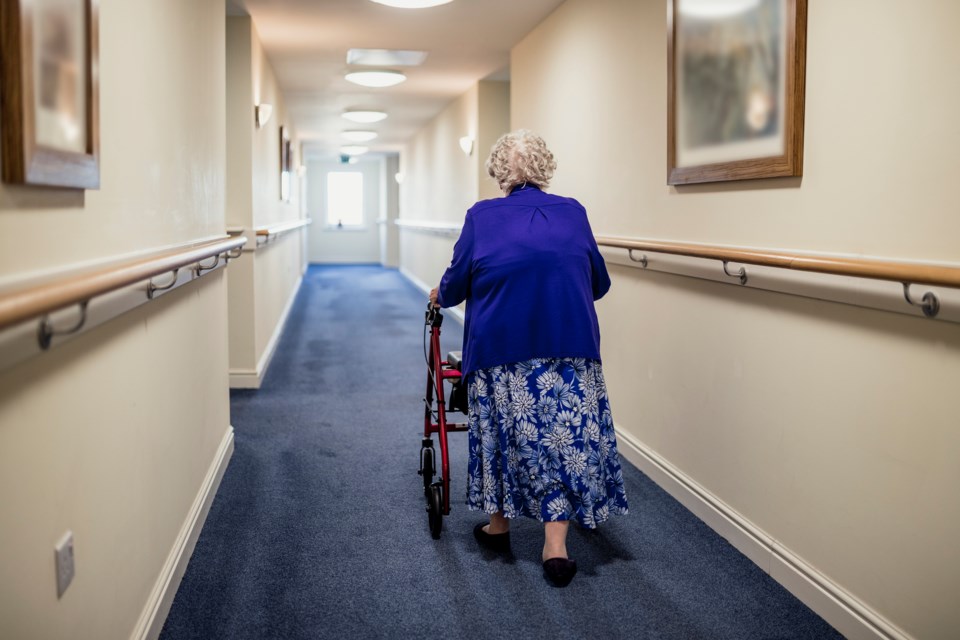In a city where the fastest growing age demographic is seniors, Vancouver will have a shortage of more than 300 subsidized long-term care beds and 90 assisted living units in 2025.
That information was supplied by Vancouver Coastal Health to City of Vancouver staff to assist them in the development of the city’s first-ever seniors’ housing strategy, which council approved in July.
“This shortage could grow to close to 1,500 long-term care beds and 350 assisted living units over the next 10 years due to demographic changes,” said the authors of the strategy, which outlines the state of seniors in Vancouver.
More than 194,000 Vancouver residents are 55 years or older, and account for 30 per cent of the city’s population. That number is expected to increase significantly over the next 20 years.
Seniors are also getting older as a cohort, with higher proportions of people aged 75 and older in the coming future, according to the strategy, which provides a long list of challenges facing seniors, including waitlists for subsidized housing.
In 2023, about 43 per cent of people — or 2,420 persons — on the social housing waitlist in Vancouver were 55 or older. From 2022 to 2023, the number of people on the waitlist increased by 18 per cent, the largest increase seen in recent years.
“The number of older adults on the social housing waitlist points to the need for more social and non-profit co-op housing, and more subsidized assisted living and long-term care or low-cost home supports as needs change,” said the authors, noting many seniors live on fixed incomes and will need to adapt to health, accessibility and housing needs as they age.
'Rapid deterioration'
A “significant number” of older adults currently live in social housing and non-profit co-op housing. About 25 per cent of seniors who live in rental housing live in subsidized rental housing.
This includes both seniors-specific non-market housing restricted to households aged 55 or older and non-market housing with no age requirements, but does not include long-term care or assisted living.
During public consultation to develop the seniors’ housing strategy, leaders in the non-profit sector said there was a lack of mobile, often temporary, supports to assist older adults living in social housing after suffering from minor health incidents.
“Without these supports, tenants may undergo a rapid deterioration in their health and no longer be able to maintain successful tenancies,” the authors said.
“The non-profit organizations noted that because these buildings are independent social housing, they are not staffed or equipped to provide the supports needed. In addition, as landlords, they do not have the legal authority to intervene and request assistance from the health authority when needed.”
Home support expensive
The strategy’s authors noted many seniors do not have family or other supports and cannot afford to pay for home supports while they wait for the needed care.
The B.C. Seniors’ Advocate highlighted the inadequacy of the current home support services system in a 2023 report, noting B.C. is the most expensive province when it comes to the cost of home support services.
In 2023, a senior with an annual income of $29,000 would have to pay $9,000 a year for a one-hour daily visit of home support. The majority of other provinces do not charge any amount for home support — “and it was found that this leads to a higher number of seniors in B.C. being admitted earlier than needed to long-term care facilities.”
Many people told city staff during consultation that the process to get in to subsidized assisted living or long-term care is complex, especially if the person does not speak English or has no family or other supports to assist them.
“We heard that older adults often find navigating systems related to finding affordable housing challenging,” the authors said. “This can include technological challenges, onerous applications and proof required, or the need for translations of materials.”
Discharged from hospital
Another finding of city staff’s research was that some older adults are discharged from hospital without appropriate discharge planning. Their existing home may no longer be accessible or adequate for their health needs and without social worker support, this can lead to homelessness, the authors said.
The city’s most recent homeless count found that 21 per cent of people counted were more than 55 years old and almost half first experienced homelessness when they were already a senior.
The overarching goal of the city’s seniors’ housing strategy is to ensure elders and older adults have the housing and supports needed to allow for aging in appropriate and affordable housing in their community.
As the strategy’s recommendations state, that goal requires assistance from the provincial and federal governments, which play crucial roles in providing housing and supports for seniors.
Glacier Media contacted the Ministry of Health Wednesday to respond to concerns raised in the city’s strategy regarding the shortage of long-term care beds and assisted living units. A response was also requested regarding the high cost of home support services, as highlighted by the B.C. Seniors’ Advocate.
No response was provided, as of 3 p.m. Friday.




